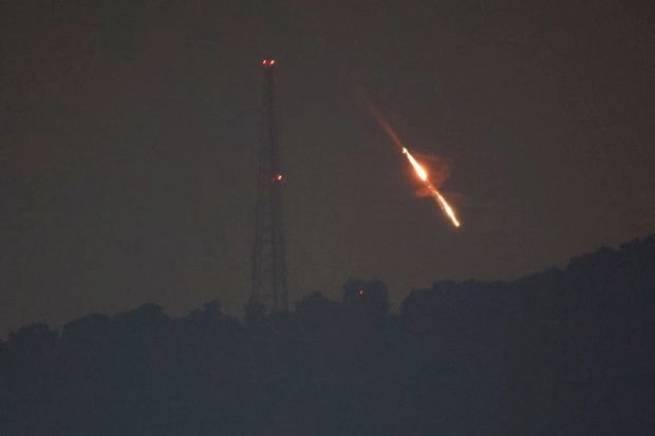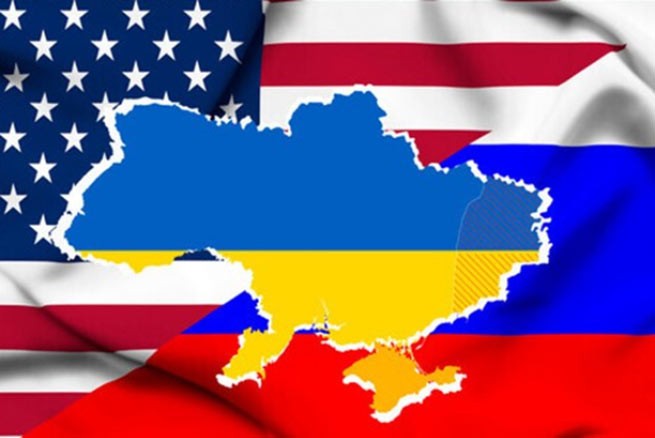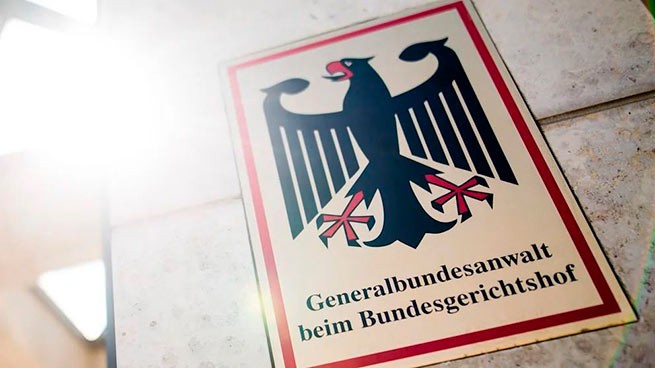Greek exporters and businessmen are following developments on the Russian-Ukrainian border with concern, according to the Greek news agency. ΑΠΕ-ΜΠΕ.
Greek exporters are watching the situation on the Russian-Ukrainian border with great concern. The fact is that sales of Greek products to Ukraine and Russia take up a small share of the total amount of Greek exports, which amounted to about 40 billion euros in 2021. And this is not so bad, since Greece has reached this indicator for the first time since Russia imposed an embargo on European goods in 2014. However, these two markets are still of great interest to Greek export companies. In addition, the road to countries such as Lithuania and Poland, which import agricultural products from Greece, passes through Ukraine. And in the event of a war between Russia and Ukraine, the transportation of export goods will be difficult.
Greek investors in the former “breadbasket of the Soviet Union”, Ukraine, who have invested in equipment and facilities in recent years, now live under the threat of a possible conflict. But, nevertheless, at the moment they are not thinking of “packing up and leaving”, despite appeals of the Ministry of Foreign Affairsas their APE-MPE representatives indicate, referring to recent telephone conversations.
There is also concern on the tourism “front” as Greece welcomes hundreds of thousands of tourists from the two countries each year. But now they are “numb” in anticipation of developments, as a result of which there are fears that the number of tourists from them will decrease significantly.
G. Bugas, Hellenic-Ukrainian Chamber: “What image did I form from conversations with businessmen in Ukraine? They are in a daze.”
“There is a colleague who imports wood from Ukraine. He ordered a shipment of sawn timber 15 days ago, but does not know if this order will ever arrive. He is thinking about not placing a new order until the situation is clear. Greek businessmen in Ukraine do not think to leave, but they are numb.According to our data, about 70 small and large Greek companies operate in Ukraine (according to the Department of Economic and Commercial Affairs of the Greek Embassy in Kiev, there are 45 such companies), concentrated mainly in Odessa, Kiev, Kharkiv and Lvov. They left Greece for Ukraine, invested money there and managed to survive. And now, when they were ready to enjoy the fruits of their investments, something similar is happening. What image did I form from telephone conversations with them? They are desperate. And, of course, they want the picture to become clear, as quickly as possible, when it is obvious that with the possibility of war, the economy is seriously shaken. ahe before the immediate war. Diplomats were recalled, various countries offered their citizens either to leave Ukraine or not to visit it.”
According to Mr. Bugas, this worsening of the situation is holding back the momentum of business relations between the two countries, which has begun to grow. “A Greek businessman who is now investing in Ukraine does it to make a profit, but not occasionally, not for easy money. There is a lot of bureaucracy in Ukraine, and Greece is a country of the European Community, with many European criteria that are not yet in Ukraine, but it is gradually adapting. In business relations between the two countries, there is an upward trend and traditionally good relations: do not forget that the Friendship Society was founded in Odessa, Ypsilantis was imprisoned in Lviv, and 150 thousand live in the Mariupol region (according to other sources, about 120 thousand. Note. edition) of persons of Greek origin,” concludes Mr. Bugas.
40,000 Ukrainian sailors on Greek ships
Dozens of Greek companies with an investment presence in Ukraine are mainly active in the trade of food, fruits and vegetables, in the recruitment of personnel for Greek shipping (it is estimated that at least 40,000 Ukrainian seafarers work on Greek ships), provide consulting services, as well as in tourism and catering. There is a small Greek construction company, according to Ukrainian data, which has been active in the country for the past 30 years. Also, Piraeus Bank is still present there, “with a small capitalization and several branches.” According to the report, “Coca Cola Hellenic, Hephaestus, Alumil, Etem, Profilco, HGI (former Yioula), Chipita, Printec, Neokem, Ukravtomatika and others” remain investment companies in the country. According to the statistics of the National Bank of Ukraine, the volume of foreign direct investment received from Greece at the end of 2020 amounted to $36.5 million, which is 12% less than at the beginning of the same year (although there are also holdings of Greek funds) in the charter of companies, registered as coming from countries other than Greece).
G. Constantinopoulos, Association of Exporters (ΣΕΒΕ): impact of constraints
Question from APE-MPE to the President of the Association of Exporters (ΣΕΒΕ) Dr. Georgios Konstantinopoulos: Is the tense situation in Russian-Ukrainian relations and, in particular, its possible escalation, expected to affect Greek exports (including product shipments)?
“The escalation of tension between Russia and Ukraine slows down the development of trade and relations with EU and hence Greece’s economic relations with the two countries. Undoubtedly, a possible rupture between the two countries will cause unrest and instability in the region, which will lead to a flurry of consequences, both in international trade and in the world economy, and in Greece’s relations with the two countries.
When asked what the heads of Greek companies that either export to Ukraine or actively invest in, see, he replied: “On Wednesday morning I spoke with two heads of banks in Ukraine, and they told me that yes, there is a strong negative atmosphere, and they are very worried. People who export to Ukraine are very worried, they work in an unsafe environment and they are trying to see and find possible alternatives,” he said.
However, despite the popularity of some Greek products among Russian and Ukrainian consumers, Greek exports to these two countries in 2021 remained at a relatively low level and represented a very small percentage of all Greek exports. And this is not only because of the embargo imposed by Russia in August 2014 on certain categories of products. “The embargo plays an important role in the low level of exports, but not the most important one. The level of exports is low because there is not enough demand, Russia is not a traditional destination for Greek products,” said Dr. Konstantinopoulos, noting that there is a Greek community in Ukraine that purchases Greek products, but Greek exports to this country are also small. .
Greek exports to both countries are less than $600 million.
It is significant that the total value of Greek products sold to both countries does not even reach 600 million euros. As Dr Konstantinopoulos points out, “Ukraine is only the 30th most important destination for Greek goods, with exports totaling €338.6m (€193.6m during the 2020 pandemic and €210.8m in 2019), while remaining at the bottom of the list.Russia consumes even less Greek products and ranks 41st, with a total export of 206.6 million euros in 2021 (161.39 million in 2020). In Ukraine, the most important industries were oil (70.5%), food (8.7%) and industrial products (7.1%), while in Russia industrial products (18.4%), chemicals (16.4%), machinery and vehicles (15.4%) raw materials (12.7%) and various manufactured goods (10.5%).
As for imports from Ukraine, in 2021 it amounted to 198.4 million euros, of which 51.2% are manufactured goods and 19.9% are food products. Thus the trade balance is positive for Greece. In contrast, Greek imports from Russia rose to particularly high levels, amounting to EUR 4.3 billion, of which 85.0% (EUR 3.6 billion) accounted for petroleum products and 10.7% manufactured goods (EUR 458.5 million). ). In terms of services, that is, mainly tourism, Greek exports for 2020 amounted to 808.6 million euros for Russia and 308.4 million euros for Ukraine, ranking 20th and 38th in the corresponding list,” he concludes.
Meanwhile, Greek fur has always been very popular in Russia, but sales have plummeted in recent years, according to data provided to APE-MPE by the Institute for Export Studies and Research (IEES)ΣΕΒΕ. As a result of many different factors, the total volume of Greek fur exports to Russia fell to 11.52 million euros in 2020 and 15.6 million euros in 2021, which has nothing to do with the times before 2017, when it reached 60 million euros .
Based on data from ΑΠΕ-ΜΠΕ and OT.GR.






More Stories
ENFIA: Find out when the refund deadline is for those who want a full tax refund
Imputed income: how freelancers can challenge it, who is exempt from paying taxes
Calculation of benefits and Easter gift from April 19